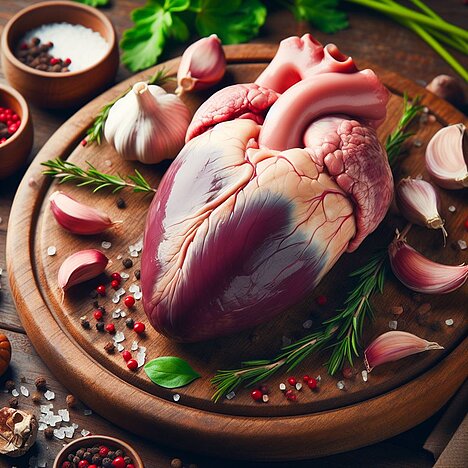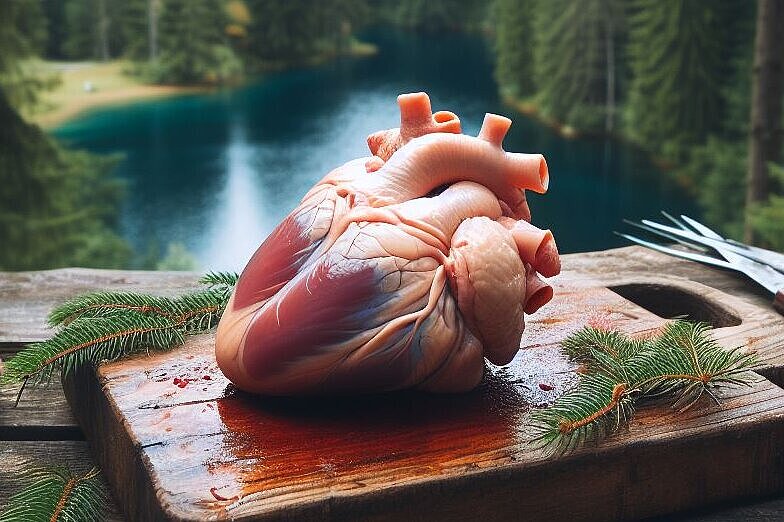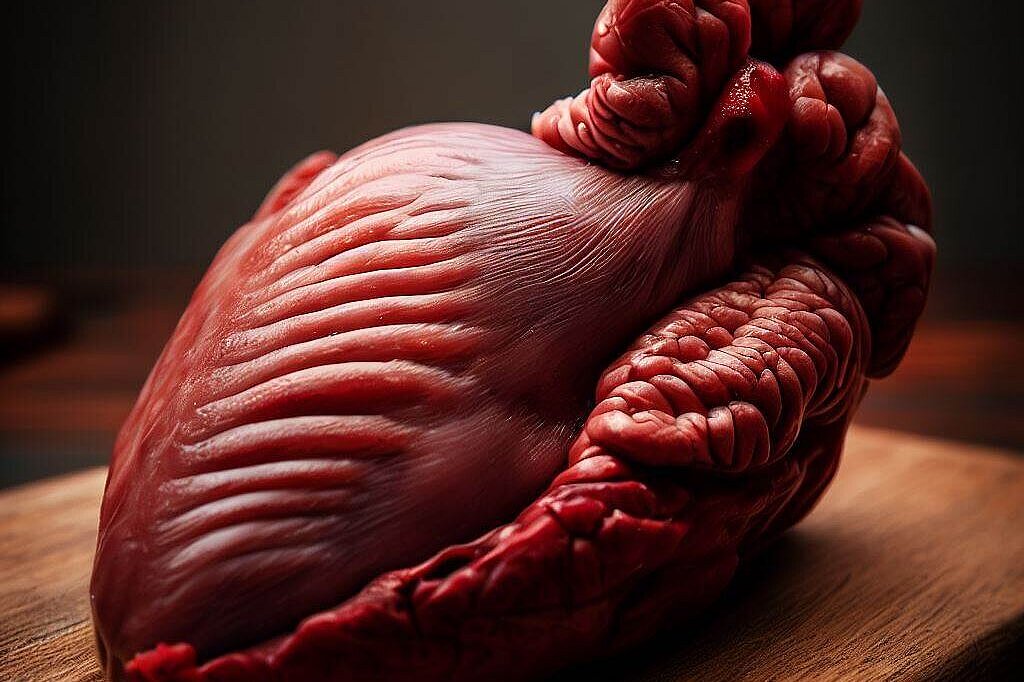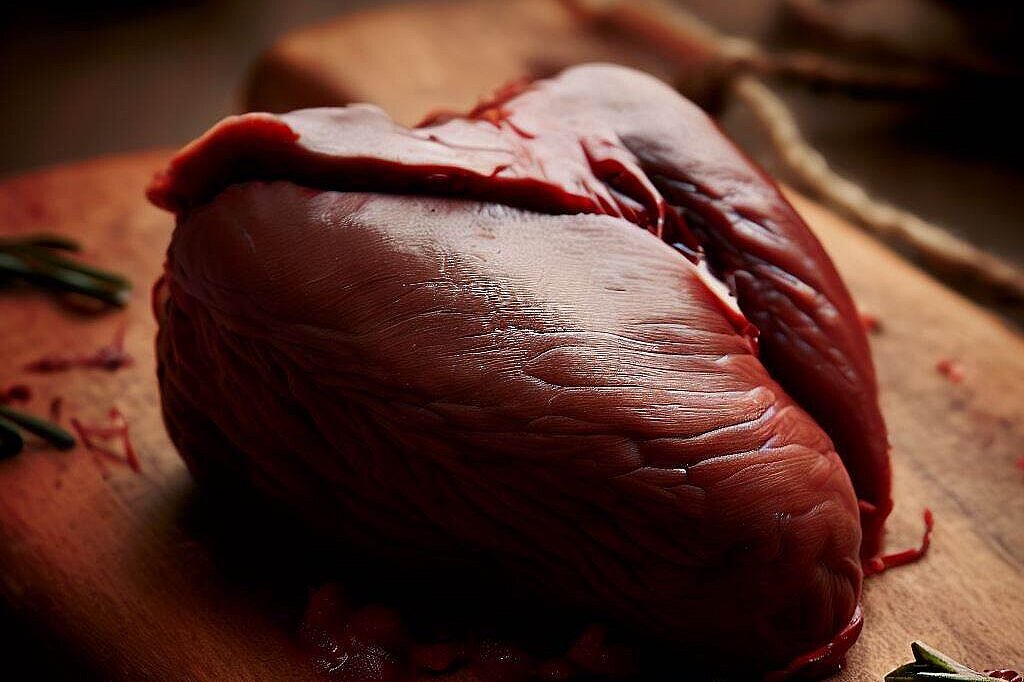Pig hearts

Pork hearts are a popular snack for many dogs who like to eat meat. But are they healthy and safe for your four-legged friend? In this article, you'll find out what pork hearts are, what their advantages and disadvantages are and how to prepare them correctly.
What are pig hearts?
Pig hearts are the hearts of pigs that are a by-product of slaughtering. They belong to the so-called offal, which is often used as animal feed or in the kitchen. Pig hearts consist mainly of muscle meat, which is rich in protein, iron and vitamin B12. They also contain taurine, an amino acid that is important for heart function and vision.
What are the benefits of pork hearts for dogs?
Pork hearts can be a tasty and nutritious addition to a dog's diet when fed in moderation. They provide high-quality protein, which is important for muscle development and regeneration. They can also strengthen the immune system and promote blood formation. Taurine can also support heart health and eyesight.
What are the disadvantages of pig hearts for dogs?
Pig hearts also have some disadvantages that you should consider before giving them to your dog. For one thing, they are very high in fat, which can lead to obesity, digestive problems or pancreatitis. Secondly, they can contain the Aujetzky's virus, which is fatal to dogs. This virus is transmitted through raw or insufficiently heated pork and causes severe encephalitis. Although it is considered to be extinct in Germany since 2003, there is no absolute certainty.
How do I prepare pork hearts for dogs?
If you want to feed your dog pork hearts, you should follow a few rules to minimize the risk of illness or discomfort. Here are some tips:
- Only buy fresh or frozen pork hearts from trusted sources.
- Always boil or fry the pork hearts thoroughly to kill any germs or viruses.
- Cut the pork hearts into small pieces and remove excess fat.
- Only feed your dog small amounts as a treat or as a side dish to their main food.
- Store the remaining pork hearts in the fridge or freezer and use them up within a few days.
- Pay attention to your dog's reaction after eating and consult a vet if there are any signs of intolerance or illness.
Pork hearts can be a tasty and healthy change for dogs if they are prepared and dosed correctly. They provide valuable protein, iron, vitamin B12 and taurine, which are important for your dog's health. However, you should also be aware of the risks associated with feeding pig hearts, such as fat content, digestive problems or Aujetzky's virus. Therefore, you should always pay attention to the quality, hygiene and quantity of pig hearts and observe how your dog tolerates them.
Properties 18
Are you looking for other ingredients with a specific property?
Just click on them to find more.
If you notice any signs of hypersensitivity or poisoning in your dog, you should see your vet immediately. We are not a substitute for a vet, but we try to be as accurate as possible. Every dog reacts differently and we recommend you get a second opinion or consult your vet if in doubt.
Stay healthy and take good care of your four-legged friend!😊
Similar to Pig hearts
Beef hearts are, as the name suggests, the hearts of cattle. They belong to the so-called offal or organ meat, which is often regarded as a by-product of the meat industry. However, they are a...
Chicken hearts are the muscles that pump blood through the poultry's body. They belong to the so-called offal or by-products and are often referred to as offal. However, this does not mean that they...
Turkey heart is the heart of the turkey, a large poultry farmed mainly in North America, Europe and Asia. The heart is a strong muscle that is about three times the size of the chicken heart. It has...
Lamb hearts are the hearts of young sheep, usually slaughtered when they are less than a year old. They are a muscle organ and consist mainly of muscle meat. Lamb hearts have a firm consistency and...



